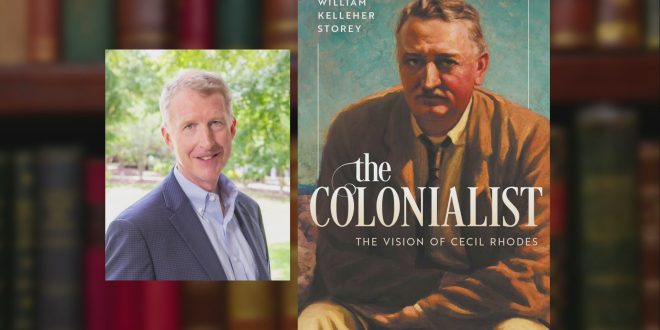Cecil Rhodes, a name synonymous with both ambition and controversy, continues to provoke debate more than a century after his death. This biography delves into the multifaceted life of Rhodes, exploring his humble beginnings, his relentless pursuit of wealth and power in Southern Africa, and the enduring legacy of his actions, which shaped the political and social landscape of the region. Beyond the iconic image of a visionary empire builder lies a complex and often ruthless individual whose impact continues to resonate in contemporary discussions of colonialism, race, and national identity. This critical examination aims to unpack the man, the myth, and the lasting consequences of his colonial project.
Early Life and Ambitions
So, where did this Cecil Rhodes character come from? Well, you might be surprised to learn that he wasn’t born into royalty or anything like that. Born in 1853 in Bishop’s Stortford, Hertfordshire, England, young Cecil was one of many siblings. Perhaps it was his large family or maybe just sheer ambition, but he had a burning desire to make his mark. I always wonder, what drives a person to seek so much power?
Arrival in South Africa and Initial Ventures
Doctors advised a change of climate due to his poor health, so Rhodes set sail for South Africa at the tender age of 17. Can you imagine leaving everything behind like that? He joined his brother Herbert in Natal, where they attempted to make a living farming cotton. Spoiler alert: farming wasn’t exactly their forte. But this early experience did introduce him to the landscape and, more importantly, the opportunities that Southern Africa presented. It’s funny how life throws you curveballs, isn’t it?
The Diamond Rush and Rise to Prominence
Diamonds! That’s where the real story begins. The discovery of diamonds in Kimberley drew Rhodes like a moth to a flame. He quickly abandoned farming and jumped headfirst into the diamond fields. It was a chaotic scene, a real free-for-all, but Rhodes had a knack for organization and a killer instinct. He wasn’t afraid to get his hands dirty – literally and figuratively. And that, my friends, is how he started his ascent. Talk about being at the right place at the right time, huh?
The Formation of De Beers and Consolidated Gold Fields
You see, Rhodes wasn’t content with just being a diamond miner. He had bigger fish to fry. He understood that controlling the supply was the key to wealth and power. So, he set about consolidating the fragmented diamond mining operations into a single, monolithic entity: De Beers Consolidated Mines. And later, he applied a similar strategy to gold mining with Consolidated Gold Fields. It’s impressive, but also a bit scary, right?
Monopoly and Control of Resources
De Beers, under Rhodes’s leadership, became the ultimate monopoly. They controlled diamond production, distribution, and even the price. It’s a classic example of how one person can exert immense influence over an entire industry. This control allowed Rhodes to amass a fortune and wield considerable political power. Was it fair? That’s a question that still sparks debate today. I’m not sure, what do you think?
Rhodes’ Business Acumen and Ruthless Tactics
You’ve gotta hand it to him, Rhodes was a shrewd businessman. He was a master of negotiation, always looking for an edge. But he wasn’t afraid to play dirty either. He used aggressive tactics, including buying out rivals and manipulating the market, to achieve his goals. Some admired his business acumen, while others condemned his ruthlessness. Hey, that’s business I guess.
Political Ascendancy and the Dream of British Expansion
Rhodes wasn’t just interested in money. He had a grand vision – a vision of British imperial expansion across Africa. And for him, political power was the means to achieve that end. This guy was all about increasing British influence and power, by any means necessary.
Becoming Prime Minister of the Cape Colony
In 1890, Rhodes reached the pinnacle of his political career when he became the Prime Minister of the Cape Colony. This gave him immense power and influence in Southern Africa. He used his position to promote British interests, often at the expense of the local population. It was a heady time, but also a dangerous one. You can imagine the kind of power he was able to wield.
The Vision of a Cape to Cairo Railway
One of Rhodes’s most ambitious dreams was the construction of a railway line stretching from Cape Town to Cairo, connecting the entire African continent under British control. It was a bold and audacious plan, and one that symbolized his imperial ambitions. The railway never fully materialized, but the idea captured the imagination of the era. Some might call it a pipe dream.
The Rhodesian Project and Colonial Policies
The region that is now Zimbabwe and Zambia became known as Rhodesia, named in honor of Cecil Rhodes. This vast territory was acquired through treaties, trickery, and outright conquest. It was a key part of his vision for a British-dominated Africa. Think of the impact those actions had on the local populations.
Acquisition of Territory and Establishment of Rhodesia
Rhodes used his British South Africa Company to administer Rhodesia. The company was granted a royal charter, giving it immense power and authority. They established settlements, built infrastructure, and exploited the region’s natural resources. All while dispossessing the indigenous people of their land. How about that?
Treatment of Indigenous Populations
The treatment of indigenous populations under Rhodes’s rule was brutal and unjust. They were subjected to forced labor, land confiscation, and cultural suppression. The colonial policies implemented by Rhodes and his company had a devastating impact on their lives and livelihoods. It’s a dark chapter in history that we must never forget. A lot of lives were turned upside down, for sure.
The Role of the British South Africa Company
The British South Africa Company (BSAC) was instrumental in implementing Rhodes’s colonial policies. It acted as both a commercial enterprise and a governing body, blurring the lines between business and politics. The BSAC’s actions were often driven by profit, with little regard for the welfare of the local population. Pretty awful stuff when you think about it.
The Jameson Raid and its Consequences
The Jameson Raid was a disastrous attempt to overthrow the Boer government in the Transvaal, orchestrated by Leander Starr Jameson, a close friend of Rhodes. The raid was a complete failure and had far-reaching consequences for Rhodes and his political career.
The Failed Attempt to Overthrow the Transvaal Government
The Jameson Raid was intended to spark an uprising among British expatriates in the Transvaal. However, the raid was poorly planned and quickly quashed by the Boer forces. The incident exposed Rhodes’s involvement and shattered his reputation. The whole thing was just a mess, frankly.
Political Fallout and Loss of Power
The fallout from the Jameson Raid was swift and severe. Rhodes was forced to resign as Prime Minister of the Cape Colony and faced widespread condemnation both in Britain and abroad. His dream of a unified British South Africa was dealt a major blow. It’s a good example of how things can quickly unravel, isn’t it?
Rhodes’ Legacy: A Critical Assessment
Cecil Rhodes died in 1902, but his legacy continues to be debated and re-evaluated. He is remembered as both a visionary empire builder and a ruthless colonialist. It’s hard to reconcile these two opposing views, isn’t it?
The Enduring Impact on Southern Africa
Rhodes’s actions had a profound and lasting impact on the political and social landscape of Southern Africa. His colonial policies contributed to racial segregation and inequality, which continue to affect the region today. The consequences of his actions are still felt decades later. That’s quite a footprint.
Controversies Surrounding his Philanthropy and Scholarships
Rhodes was also a philanthropist, establishing scholarships and donating money to various causes. However, his philanthropy is often viewed with skepticism, given the source of his wealth and the injustices of his colonial policies. Can good deeds truly redeem a problematic past?
Reconciling the Legacy of Empire with Contemporary Values
In the 21st century, we are grappling with the legacy of empire and colonialism. Rhodes’s statue has been removed from some universities, and his name is increasingly associated with racism and oppression. It’s a complex and challenging task to reconcile the past with contemporary values. We must be sensitive, while being critical of the past.
In the end, Cecil Rhodes remains a figure of immense complexity and contradiction. Was he a visionary or a villain? A builder or a destroyer? Perhaps he was a bit of everything. His story serves as a reminder of the complicated legacy of colonialism and the enduring impact of individuals on the course of history. It’s up to you to decide how to perceive him.
 Cloudabouts
Cloudabouts




